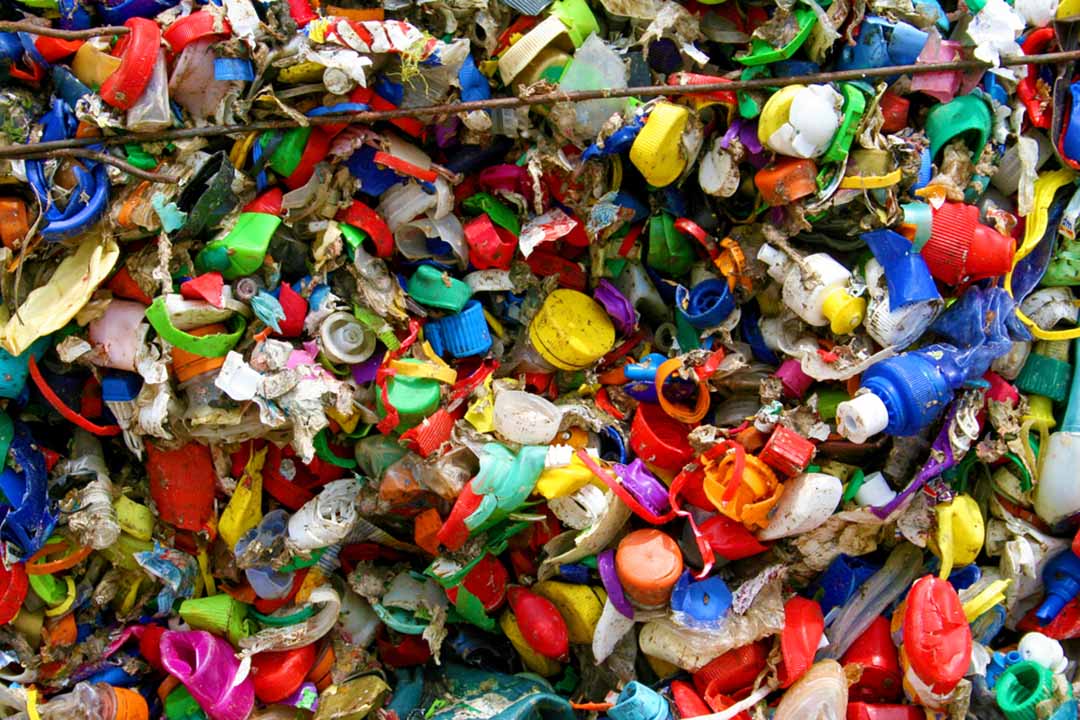
Federal funding has been announced for research looking into sorting scrap plastic and using enzymes to clean material, among other recycling-related efforts. | paul prescott/Shutterstock
The REMADE Institute announced it will provide $6 million to fund several recycling research projects. The same day, it declared it’ll provide up to $35 million for its next round of grants.
Based at the Rochester Institute of Technology (RIT) in New York, the REMADE (Reducing Embodied-Energy and Decreasing Emissions) Institute is a public-private initiative that funds research into remanufacturing and recycling technologies.
Third funding round awards
Launched in early 2017 and supported by federal funds, the institute has now awarded funding in three rounds. The first round of funding was announced in July 2018, and the second round recipients were unveiled in May 2019.
The third round, announced Aug. 17, touches on designing equipment for recovery, reuse, remanufacturing and recycling (referred to in the release as “Re-X”); developing improved technologies for recovering metals from scrap electronics; improving scrap plastic sorters; boosting recycled fiber quality; and training the workforce in paper recycling.
In the release, the REMADE Institute said the following projects “have been selected for negotiations” over funding support (heavy equipment remanufacturing projects are not included below):
Paper: Western Michigan University, Idaho National Laboratory, Graphic Packaging International and WestRock are working on a project titled “Biological & Bio-Mechanical Technologies for Recycled Fibers to Regain Fiber Quality and Increase Secondary Feedstock in High Value-Added Paper Grades.” This project seeks to develop new technologies to remove contaminants from recycled paper to less than 0.5%. Additionally, they’re seeking to develop technologies to regain fiber quality during fiber refining through the use of enzymes.
“The new technologies developed will help the paper recycling industry to produce much cleaner pulp and higher quality fibers so more recycled fibers can be used in place of virgin fibers in high grade paper,” according to the press release. They’ll also reduce energy consumption and increase yield.
Separately, Western Michigan University, Graphic Packaging International and Resource Recycling Systems (RRS) are working on a project to develop curriculum and coursework in advanced fiber recycling. The materials will be for the REMADE Education and Workforce Development Tiered Certificate Pathway program.
Plastics: Michigan State University and Sealed Air are working on a project, titled “CombiClean: Facilitating Contaminant Removal in Recycled Plastics,” which is seeking to improve optical sorting of scrap plastics. Specifically, the project’s goal is to develop an open source database, called CombiClean, with hyperspectral characterization data (combined FTIR, Raman and LIBS data) on virgin, contaminated and cleaned plastics. The data will be used to train machine-learning algorithms, which will be used to improve sorting. Additionally, the research will look at using enzymes to clean scrap plastics, versus typical hot caustic wash systems used today.
E-scrap: Virginia Tech and Phinix LLC are working on a project titled “Low-Concentration Metal Recovery from Complex Streams Using Gas-Assisted Microflow Solvent Extraction (GAME).” The effort focuses on developing an efficient and cost-effective method of extracting and purifying precious metals from printed circuit boards (PCBs).
Separately, Penn State University and CHZ Technologies are researching a project titled “Development and Validation of Metal Separation Technology for Complex Metal Systems,” which similarly focuses on developing an efficient, low-cost and environmentally harmless leaching method for extracting valuable metals from PCBs.
$35M available for awards
In a separate Aug. 17 press release, the REMADE Institute announced it has issued its fourth request for proposals to invest up to $35 million in R&D projects focused on metals, polymers, fiber and e-scrap. The funding must be matched dollar-for-dollar by project participants.
For its fourth round of funding, REMADE has prioritized domestic recycling of plastics, according to the release.
Letters of intent and project abstracts are due at 5 p.m. Eastern time on Sept. 14, with full proposals due by 5 p.m. Eastern time on Oct. 19.
“With the challenges facing industry today, it is increasingly important to improve U.S. manufacturing competitiveness,” Nabil Nasr, REMADE’s CEO, stated in the release. “Our partnership of 100 industry, national laboratory and academic innovators are working together to reduce the energy and environmental burden of domestic manufacturing while delivering value to industry, the economy and the environment.”
A version of this story appeared in Plastics Recycling Update on August 26.